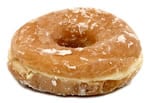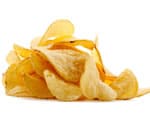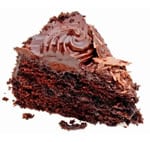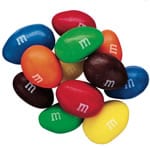Food addiction is a real thing and often leads to overeating, particularly of unhealthy foods, which can cause obesity as well as increase risk of lifestyle diseases such as heart disease, type 2 diabetes and even some cancers. Although evidence suggests that some foods can be highly addictive some people still doubt this psychological effect.
What makes foods more addictive?
Foods that are high in fat, sugar or salt, or possibly a combination of all three. These three ingredients are thought to have addictive qualities, which may explain why addiction is more likely to occur in unhealthy junk foods compared with fruit, vegetables and lean protein.
Overeating sugar produces addictive eating behaviours, and it has similar effects on the brain as drug addiction. Sugar releases two substances ( opioids and dopamine ) in the brain, that are implicated in addictive behaviours.
Highly salted foods are also addictive as salt stimulates - opiate and dopamine - receptors in the brain, that is may be responsible for cravings and hunger.
Animal studies made scientists believe that foods high in fat can also cause addiction, however this addiction may differ to sugar addiction.
Animal studies made scientists believe that foods high in fat can also cause addiction, however this addiction may differ to sugar addiction.
What are the most addictive foods?
Food addiction expert Ashley Gearhardt from the University of Michigan, a co-creator of the Yale University’s Food Addiction Scale has released a list of what she considers to be the most addictive foods in our diet.
White Bread
 Products that contain highly refined carbohydrates such as white bread are not much different from eating sugar as the carbohydrate is broken down to its more basic form, glucose, in the body very quickly. Less processed carbohydrates, such as whole grain bread, take longer to break down in the body and therefore may have less of this effect.
Products that contain highly refined carbohydrates such as white bread are not much different from eating sugar as the carbohydrate is broken down to its more basic form, glucose, in the body very quickly. Less processed carbohydrates, such as whole grain bread, take longer to break down in the body and therefore may have less of this effect.
Donuts
High in fat and sugar, it is not surprising that donuts are on the list of the most addictive foods. Not only this but are they high in calories and have little nutritional value at all aside from energy.
Pasta
 Pasta and other carbohydrates boost tryptophan levels in the brain, which can cause sleepiness. This increase in tryptophan may also boost serotonin levels causing us to feel content, a feeling which we may be keen to replicate, leading to overeating of these types of food.
Pasta and other carbohydrates boost tryptophan levels in the brain, which can cause sleepiness. This increase in tryptophan may also boost serotonin levels causing us to feel content, a feeling which we may be keen to replicate, leading to overeating of these types of food. Cake
CakeBasically sugar and fat in a pretty packet, cake is another food to offer very little nutritional benefit and have potential to be addictive. Keep them for special occasions and look for healthier sweet treats such as fruit.
Cookies
High in fat, sugar and often salt too, cookies are a bit too easy to overeat. It has been suggested that even seeing foods that we find tempting can trigger dopamine release, so keep them out of sight to avoid over consuming.
Chips
 Chips are a vessel for salt and fat and most people have probably experienced their addictive qualities before. Just look at the slogan for popular brand Pringles, who have gone as far as to use addictive qualities as a selling point, “Once you pop you can’t stop”.
Chips are a vessel for salt and fat and most people have probably experienced their addictive qualities before. Just look at the slogan for popular brand Pringles, who have gone as far as to use addictive qualities as a selling point, “Once you pop you can’t stop”.
Chocolate
 Most of the population, particularly women, seem to find chocolate addictive in nature and indeed studies show that there may be reasons for this and that our cravings for this diet wrecker have scientific fact to support them.
Most of the population, particularly women, seem to find chocolate addictive in nature and indeed studies show that there may be reasons for this and that our cravings for this diet wrecker have scientific fact to support them.
Chocolate addiction, whilst maybe not as strong as those of alcohol and drugs is considered to be caused by numerous factors, from its pleasant taste and smell to biologically active components which have the potential to cause psychological changes similar to other addictive substances.
French Fries
 Chips are a vessel for salt and fat and most people have probably experienced their addictive qualities before. Just look at the slogan for popular brand Pringles, who have gone as far as to use addictive qualities as a selling point, “Once you pop you can’t stop”.
Chips are a vessel for salt and fat and most people have probably experienced their addictive qualities before. Just look at the slogan for popular brand Pringles, who have gone as far as to use addictive qualities as a selling point, “Once you pop you can’t stop”.Chocolate
 Most of the population, particularly women, seem to find chocolate addictive in nature and indeed studies show that there may be reasons for this and that our cravings for this diet wrecker have scientific fact to support them.
Most of the population, particularly women, seem to find chocolate addictive in nature and indeed studies show that there may be reasons for this and that our cravings for this diet wrecker have scientific fact to support them.Chocolate addiction, whilst maybe not as strong as those of alcohol and drugs is considered to be caused by numerous factors, from its pleasant taste and smell to biologically active components which have the potential to cause psychological changes similar to other addictive substances.
French Fries

No surprises here,
after all what are French fries?
Carbohydrate that is broken
down to sugar coated
with fat and salt.
Candy
with recent researchers comparing the action
 of this food on our brains to that of cocaine.
of this food on our brains to that of cocaine.Ice cream
Possibly one of the most addictive foods out there. Studies in animal models have suggested that using processed foods high in fat and sugar, such as ice cream, as a reward can rewire the brain so it no reacts to other foods that may have been considered rewarding before, such as fruits. If the same is true in humans, it would explain the feeling when only ice cream will do the job!


Very nice
ReplyDelete